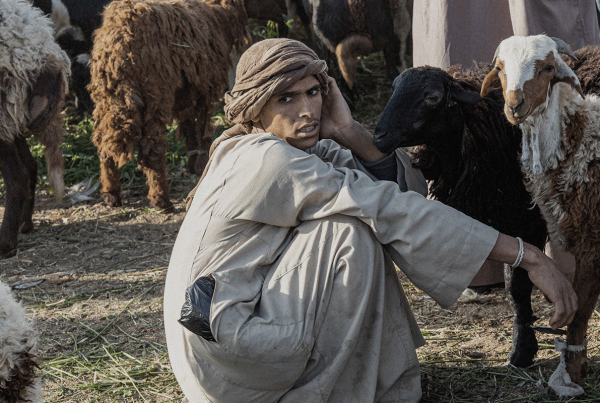For survivors of human trafficking, healing and empowerment to move forward are vital to experiencing true freedom. At The Exodus Road, we believe there is great need for intervention and rescue, but the hard truth is that survivors are still very much at risk for being re-trafficked. The anti-trafficking movement is relatively new and unknown to much of the world, and that lack of awareness and understanding can correlate to a lack of support for the important work of aftercare. Additionally, challenges like funding, poor partnerships between government and nongovernment organizations, capacity, and a lack of knowledge of effective care can be overwhelming. There are aftercare organizations that are doing exceptional work to aid survivors in healing, but the fallout of trauma met with the unique needs of survivors creates four barriers which can obstruct a thorough aftercare journey for survivors.
Challenge #1: Survivors have been groomed not to trust offers of help.
It is hard to imagine, but often survivors are resistant to receiving aftercare services. When survivors are released from their trafficking situations, they are wary of institutionalized offers of help. Traffickers groom survivors to be suspicious of police, government organizations and NGOs. Adult survivors must give their consent to receive treatment, but it is not uncommon for them to to reject it. It may be difficult to understand why a survivor wouldn’t immediately agree to aftercare, but human trafficking is not only an abuse of the body, but of the mind as well. Survivors do not yet have the capacity for trust and may even return to their trafficker for “protection.” Children are mandated by government law to be kept in aftercare, but this can feel repressive to minors who may have still had the ability to wander the streets, even while being controlled by a trafficker. Initially, the challenge is that survivors just lack understanding of the value of aftercare services.
Challenge #2: Survivors require unique trauma therapy.
The trauma inflicted by the experience of human trafficking is unique and presents a challenge to aftercare providers. This particular type of repeated trauma, known as complex trauma, is still being researched. What psychologists do know is that standard therapy isn’t meeting the needs of survivors and may even retraumatize them. Trauma-informed therapy specific to a survivor’s age, gender, personal and cultural identity is crucial to the work of healing. Also, some providers do not yet fully understand human trafficking and believe that survivors, even child survivors, choose to sell themselves. That lack of understanding disqualifies certain providers from offering the help needed. A greater discussion needs to take place about at-risk populations and their very real desperation for survival.
Challenge #3: Some aftercare shelters are not specialized in helping survivors of human trafficking.
In some circumstances, survivors of human trafficking are taken to institutions created for sheltering people experiencing a range of social problems. The specific needs of survivors such as medical, psychological, legal, educational and job training are not as likely to be met by a generalized shelter. When those needs are not met, the chances of survivors successfully re-entering or repatriating back into their home community are very low. Even survivors that do receive effective aftercare remain vulnerable if the risks that brought them into trafficking are not removed or addressed. A survivor cannot thrive if they are not well-equipped to live in a community where there is little work, education is not widely accessible, and exploitation is not being punished to deter traffickers.
Challenge #4: Aftercare is often dependent on outside financial support.
A lack of financial backing presents a barrier to providing quality aftercare. Many aftercare shelters are government-subsidized and run, yet with few funds allocated to their budget. Meanwhile, other private and NGO shelters are dependent on donors to fund their work. Either way, funding for aftercare tends to be low which limits the resources and services the shelter is able to provide. This, in turn, translates to a lower quality of care, making the shelter a less desirable option for survivors. The problem is cyclical. Outcomes are hard to measure, creating an additional challenge in fundraising, which then leads to less effective and impactful shelters.
Survivor Care is Incredibly Difficult, but Absolutely Worth It.
In spite of the many challenges, we recognize the value of aftercare and are committed to supporting aftercare services. At The Exodus Road, we allocate funds to support various aftercare shelters, including two aftercare shelters that specialize in the care of human trafficking survivors in India and Latin America. Each partner is fully vetted, legally registered, and in good standing in each country. Both provide medical and psychological examinations and training programs to ensure that survivors leave aftercare with job skills and potential employment. We believe the aftercare component is so important that we also employ local social workers as an integral part of our Search + Rescue Team in each country where we operate, including the salaries for two social workers who work full time with an aftercare shelter in Latin America.
Human trafficking is a 150 billion dollar industry. Quelling the demand, arresting traffickers, and bringing rescue and healing to survivors through effective aftercare is not an easy task by any means. It is costly in every possible avenue. Yet seeking the genuine freedom and holistic care for sons and daughters, when they begin their journeys after rescue, is still most definitely a mission worth fighting for.
| Additional Reading: |







